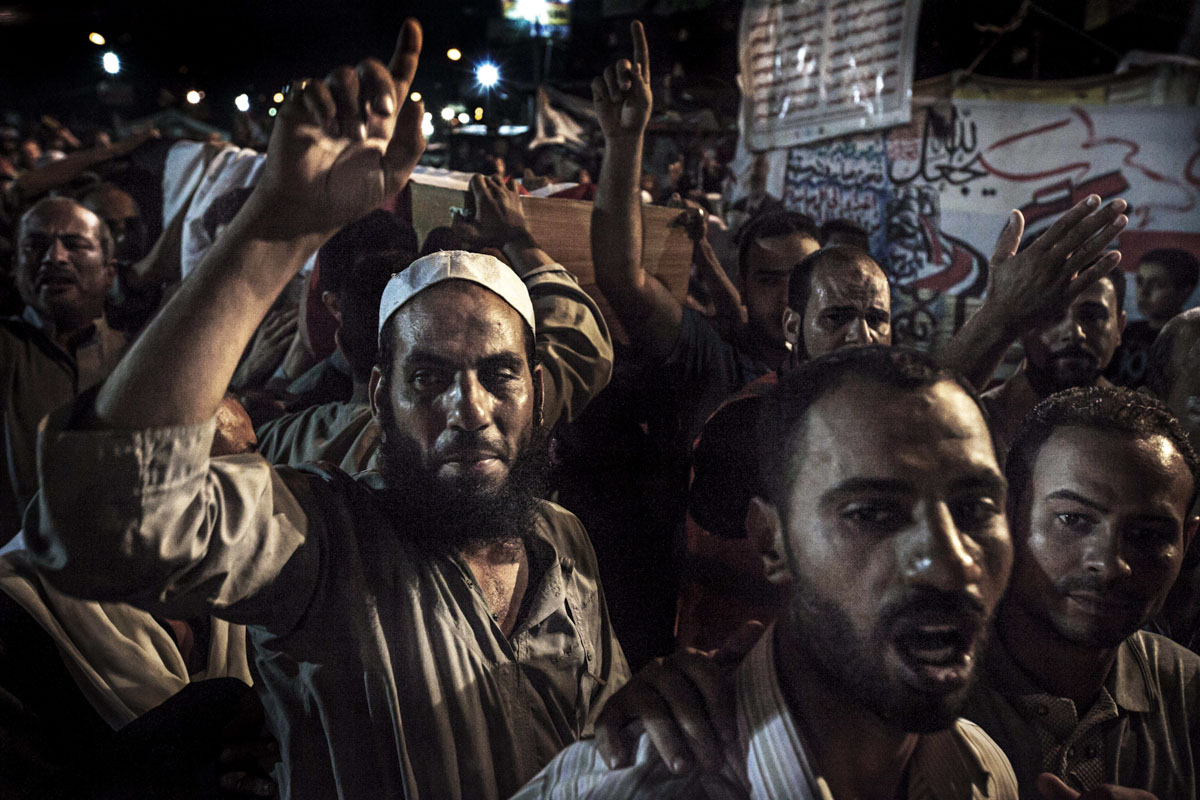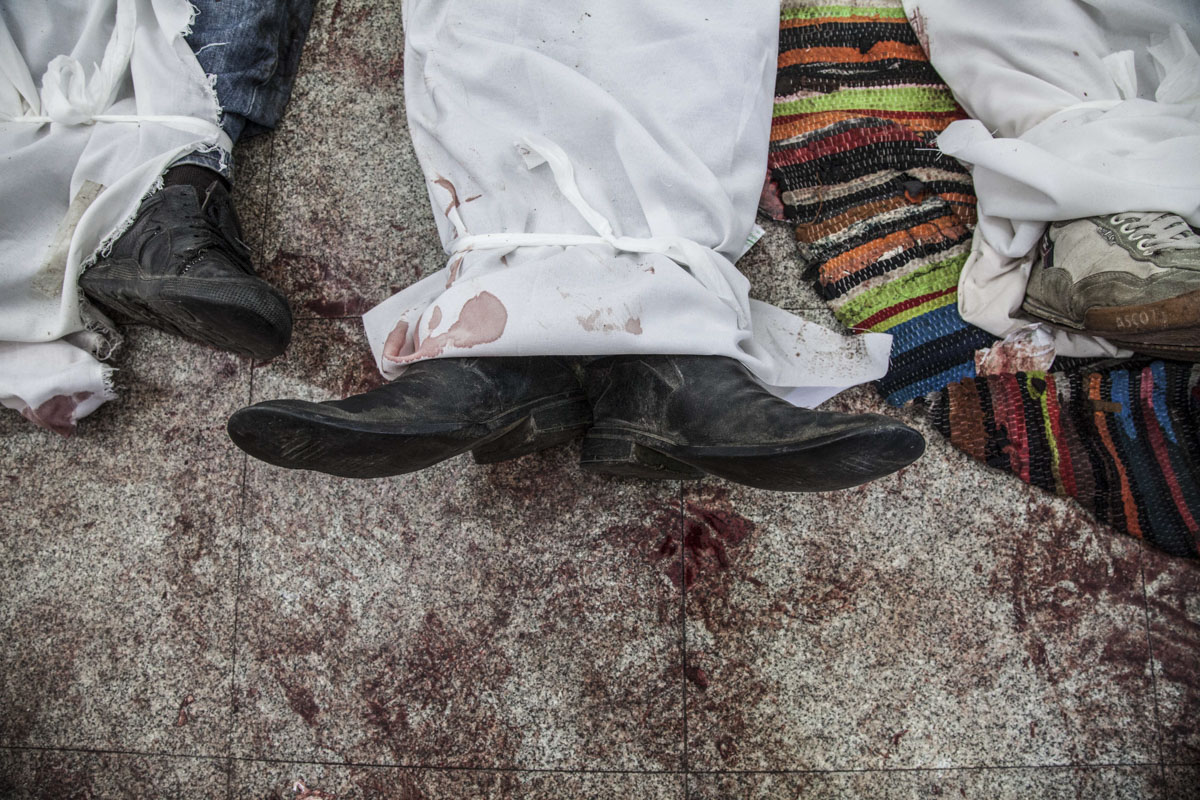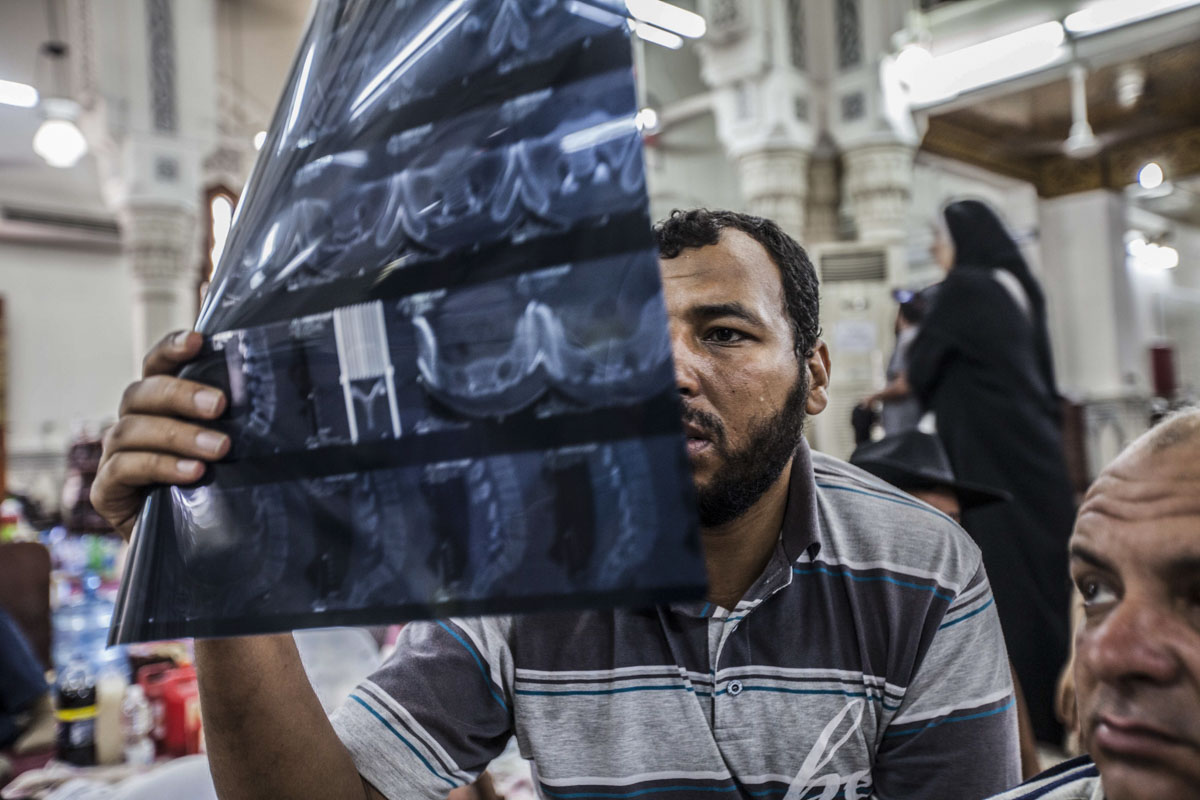EGYPT, CAIRO,
RABAA MASSACRE
2013
On 14 August 2013 Egyptian security forces raided two camps of protesters in Cairo: one at al-Nahda Square and a larger one at Rabaa al-Adawiya Square. The two sites had been occupied by supporters of ousted President Mohamed Morsi, who had been removed from office by the military a month earlier, following mass street protests against him.
The camps were raided after initiatives to end the six week sit-ins failed and as a result of the raids the camps were cleared out within hours. The raids were described by Human Rights Watch as "one of the world’s largest killings of demonstrators in a single day in recent history”.
According to Human Rights Watch, a minimum of 817 people and more likely at least 1,000 were killed in Rabaa Square on August 14. According to the Egyptian Health Ministry, 638 people were killed on 14 August (of which 595 were civilians and 43 police officers) and at least 3,994 were injured.
The Muslim Brotherhood and the National Coalition for Supporting Legitimacy (NCSL) claimed the number of deaths from the Rabaa al-Adawiya Mosque sit-in alone was about 2,600. The total casualty count made 14 August the deadliest day in Egypt since the 2011 Egyptian revolution, which had toppled Morsi's predecessor Hosni Mubarak. The clashes were widely denounced by several world leaders. Violent retaliation followed in several cities across the country. The interim government declared a month-long state of emergency in response and curfews were instituted in many areas.


























